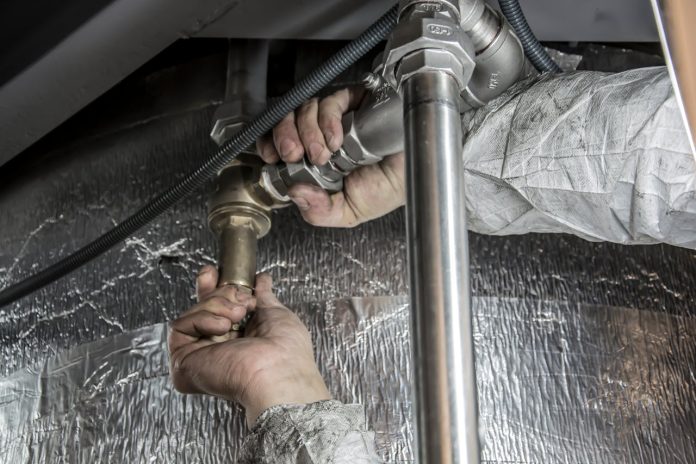Regular plumbing maintenance is an essential part of keeping your house safe and functional. Untreated plumbing issues can result in severe damage and repair costs that can reach thousands of dollars.
However, by performing regular inspections and maintenance, you can prevent many problems from becoming severe. This article provides an overview of the importance of regular, professional plumbing repair, including how it works and why it is essential.
Professional plumbing maintenance includes regular inspections and tune-ups of your home’s plumbing system. During this process, specialists will check pipes, drains, and fixtures for signs of wear and tear or damage. They can detect potential leaks and other problems that could lead to an unanticipated plumbing emergency.
After doing their inspections, NLK Plubming Point Cook can make any necessary repairs or replacements, certify that your plumbing is up to code, and ensure optimal functionality.
Why is Plumbing Maintenance Important?
Neglecting a plumbing problem can turn into a serious concern over time, endangering your family’s safety and potentially affecting your neighbours. Procrastination exacerbates the possible threats. Minor issues must be addressed as soon as possible to avoid becoming costly emergencies. Entrusting the task to a qualified plumber ensures not only quick discovery and cure of problems but also compliance with preventive measures. NLK Plubming Point Cook reduce the risk of future issues by conducting routine maintenance techniques such as drain cleaning and pipe inspections. Investing in preventive care not only protects your home but also saves you the expensive costs associated with addressing catastrophic plumbing emergencies.
1. Cleaning the Sink Pipe
Maintaining clean water pipes is critical to avoiding jams and impediments. Hair, soap residue, food scraps, and other debris can clog your plumbing system, causing sluggish drainage or clogs. Scheduled expert maintenance is required to mitigate these risks and ensure that your sink continues to perform correctly. Routinely examining and cleaning your pipes allows you to handle possible clogs before they become a problem, ensuring maximum water flow and preventing costly repairs. Prioritising plumbing cleaning not only improves efficiency but also protects against water damage and other hassles. Regular maintenance is essential for keeping your plumbing system functioning efficiently and your property in good condition.
2. Check for Leaks
Regular maintenance is essential for ensuring the longevity and effectiveness of your plumbing infrastructure. Employing the services of a plumber for frequent inspections can reveal concealed leaks that would otherwise go undetected. Despite their seeming insignificance, even little leaks have the potential to cause havoc over time, encouraging mould growth and causing significant water damage on your floors and walls. As a responsible property owner, prioritising plumbing maintenance not only avoids unnecessary repairs but also improves the system’s overall efficiency. By proactivelyso relving issues through routine maintenance, you not only extend the life of your plumbing but also assure its continuing functionality, safeguarding the structural integrity of your property.
3. Maintain Your Toilet
To avoid costly repairs, ensure that your toilet performs correctly. A leak-free and unclogged toilet not only saves you money but also conserves water, which lowers utility bills. Regular maintenance improves efficiency, resulting in significant savings over time. By regularly servicing your toilet, you reduce the danger of substantial plumbing disasters, such as floods caused by clogged or ruptured pipes. Proactive care not only protects your home’s infrastructure but also encourages environmental responsibility by reducing water waste. Investing time and effort in toilet maintenance pays off in the long run, providing peace of mind and financial stability while also contributing to sustainable living practices.
4. Checking Water Pressure
Checking your home’s water pressure is another vital step in plumbing maintenance. High water pressure may appear to be a luxury, but it can cause long-term harm to your plumbing. Low pressure could suggest a leak or a blockage. Professional plumber services use sophisticated gear to determine your water pressure. Then, they can modify it to a safe and appropriate setting.
5. Check Water Pressure
Water quality can have a significant impact on your health, and it is critical to keep it under control. Problems with your pipes and faucets can affect the water you drink, cook, and clean. A trained plumber can detect and resolve such issues before they worsen. Professional plumbing maintenance can help you avoid problems like accumulated silt, bacterial growth, and leaks that contaminate your water supply.
6. Checking Your Garbage Disposal
Your garbage disposal unit is in charge of breaking down food waste into little particles that can quickly move through the plumbing system. Even the greatest disposals can become clogged over time. You must also consider the fact that your unit will ultimately age and experience wear and tear.
Regular maintenance helps guarantee that your garbage disposal works correctly and prevents damage and obstructions.
7. Maintaining Your Water Heater
An initial inspection can determine whether your water heater is working correctly. It also helps to ensure that all of the components are in good working order. Maintenance may also include a complete tank cleaning. During this step, the plumber flushes the system. This may be necessary to eliminate silt accumulation. Regular Plumbing services in Caroline Springs help prevent any damage and extend the unit’s life. Remember that preventive measures are usually more cost-effective than reactive ones.
Conclusion
Plumbing maintenance is critical to maintaining a functional and sanitary environment. Regular maintenance eliminates costly damages such as leaks, pipe breaks, and water contamination, extending the life of plumbing systems. It protects against health concerns such as mould growth and waterborne infections, resulting in a safer living environment. Furthermore, preventative maintenance lowers utility bills by increasing water efficiency. Overall, addressing plumbing maintenance promotes sustainability, cost-effectiveness, and well-being in both home and commercial environments.
Apart from that, if you are interested to know about “Modern Plumbing Do’s and Don’ts” then visit our “BATHROOM” category.
















